News
July 2024 – Boston Medical Center Cancer Center has been designated as high performing by US News and World Report.
June 2024 – Dr. Heaphy has been promoted to Associate Professor of Medicine at Boston University Chobanian & Avedisian School of Medicine.
May 2024 – Dr. Joakin Mori participated and served as one of the Instructors for the PAIR-UP Imaging Workshop hosted by the Marine Biological Laboratory in Woods Hole.

May 2024 – Dr. Heaphy presented at the Department of Pathology & Laboratory Grand Rounds at Boston Medical Center.

May 2024 – Dr. Heaphy gave an overview on the NET impact through basic and translational research at the NET IMPACT Research and Thrivership Patient Education Conference in Providence.
February 2024 – Congratulations to our collaborative colleagues at the Luxembourg Institute of Health (LIH) and National Centre for Scientific Research (CNRS) for their published paper in Nucleic Acids Research. We are proud to make some contributions to this important work.
January 2024 – Dr. Joakin Mori was invited to participate in the PAIR-UP Advance Imaging Workshop for Black Imaging Scientists @ Zeiss in Dublin, CA.

January 2024 – We are excited that Kenel Dufort is joining the lab. As a molecular biologist and translational cancer researcher, Kenel brings experience in immunohistochemistry, biomarker validation, and cancer vaccine development. Welcome Kenel!
December 2023 – Wonderful way to end the year – a Notice of Award from the NCI on our R21 “Delineating the myeloid-centric immunosuppressive crosstalk as targets for prognosis and therapy in neuroendocrine tumors“. Looking forward to starting this project with the Dries Lab and Singhi Lab in the new year!

December 2023 – Thanks to Dr. Alan Meeker from The Johns Hopkins University School of Medicine for visiting the BU/BMC campus. Along with Dr. Joakin Mori, he was in town to participate in the American Society for Cell Biology – National Science Foundation Faculty Research and Education Development (FRED) Program.
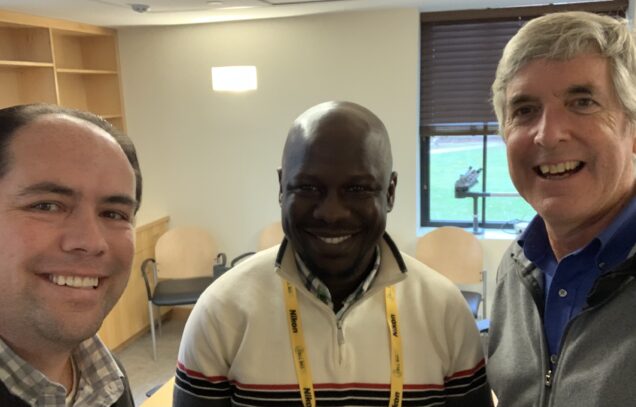
December 2023 – We are excited to welcome Lin Chen to the lab! Lin is currently a 2nd year medical student at Boston University School of Medicine.
November 2023 – Busy week for the lab! Dr. Joakin Mori participated in the week-long AACR Translational Cancer Research for Basic Scientists Workshop and Dr. Heaphy presented at the Neuroendocrine Tumor Research Foundation Annual Research Symposium on the development of the new ALT-CISH assay (video).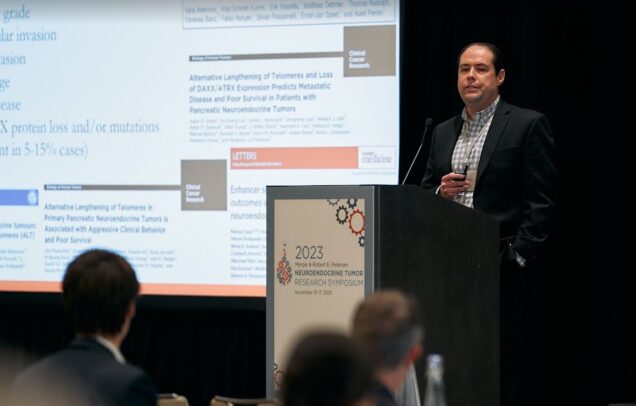
November 2023 – Excited to share our latest article in Nature Reviews Urology on the prognostic and therapeutic potential of senescent stromal fibroblasts in prostate cancer, led by Dr. Joakin Mori.
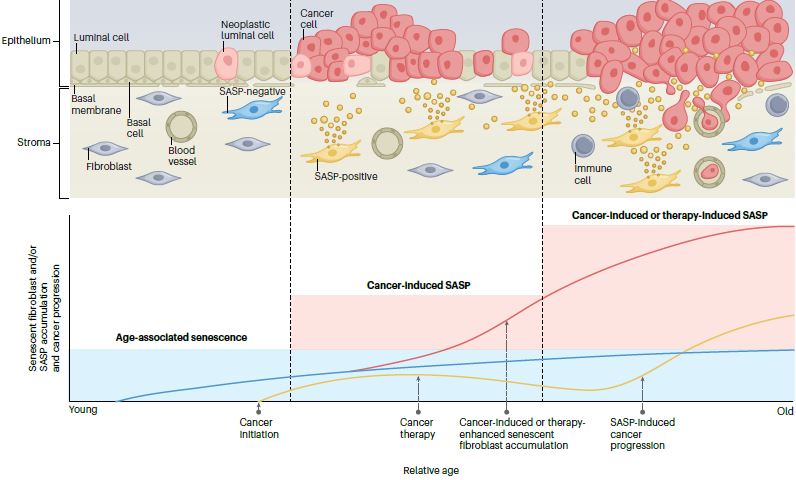
November 2023 – We are excited to welcome Carlo Lanza to the lab! Carlo is currently a second-year undergraduate student majoring in Medical Sciences as part of BU’s Seven-Year Liberal Arts/Medical Education Program.
October 2023 – Dr. Joakin Mori presented his study “Linking stress to cellular senescence in the prostate cancer microenvironment” at the 2023 BU Department of Medicine Evans Day. BU students, Koushik Gadhachanda and Natalia Feced Garcia, contributed to the study.
September 2023 – We are proud to be a part of this awesome group – the Section of Hematology and Medical Oncology at Boston Medical Center and Boston University Chobanian & Avedisian School of Medicine.

September 2023 – Thanks to our longtime collaborator and friend, Dr. Seung-Mo Hong, for visiting us from South Korea! And congrats on becoming the Chair of Pathology at ASAN Medical Center in Seoul.
August 2023 – Thank you to the Neuroendocrine Tumor Research Foundation (NETRF) for highlighting our research and recent success in grant funding.
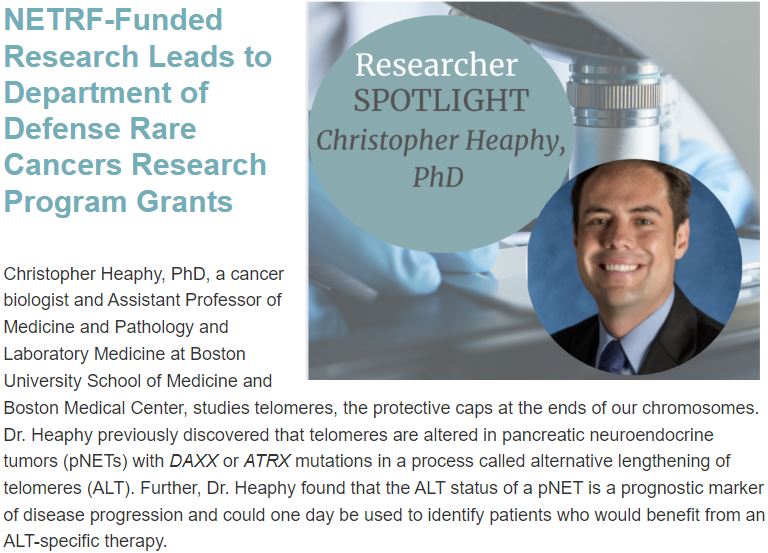
August 2023 – Thankful to National Cancer Center for funding our MPI R01! Excited to work with Dr. Alan Meeker and the Hopkins team to continue evaluating our telomere biomarker as a tool to inform decision-making for aggressive salvage therapy in men with rising PSA post prostatectomy.
August 2023 – Dr. Joakin Mori has been selected as a recipient of a collaborative Peer Imaging Clusters (PIC) research grant through the The PAIR-UP Imaging Science program for Black imaging scientists. He will be working with colleagues from Rensselaer Polytechnic Institute, Mayo Clinic, and University of Delaware on a project titled “Beyond diffraction limited imaging: Predicting cancer and immune cell phenotype“. Congrats Joakin!
June 2023 – Thank you to the Boston Medical Center for awarding our lab the 2023 Cancer Research Innovator Award.
May 2023 – appointed to the Nominating Committee for the North American Neuroendocrine Tumor Society (NANETS).
May 2023 – We are excited to have two BU undergraduate students, Natalia Feced Garcia and Koushik Gadhachanda, join our lab for the summer and upcoming academic year. Welcome!
April 2023 – Congratulations to Dr. Joakin Mori who has been invited to participate in the American Society for Cell Biology – National Science Foundation Faculty Research and Education Development (FRED) Program! His outside faculty mentor will be Dr. Alan Meeker from the Department of Pathology at The Johns Hopkins University School of Medicine.
April 2023 – We are grateful to the Congressionally Directed Medical Research Programs (CDMRP) Rare Cancers Research Program for recommending to fund two of our proposals on the same day! We look forward to getting the chance to spatially map PanNETs (Concept Award) with the Dries Lab and uncover genetic vulnerabilities in PanNETs (Idea Development Award) with the Flynn Lab.
April 2023 – Check out our new preprint on bioRxiv in collaboration with the De Marzo Lab (Johns Hopkins) – Chromogenic detection of telomere lengths in situ aids the identification of precancerous lesions in the prostate. This novel “Telo-CISH” assay allows simultaneous assessment of histomorphology, identification of specific cell types, and assessment of telomeres. This assay will extend the clinical applicability of tissue-based telomere measurements. Update: Now published in The Prostate.
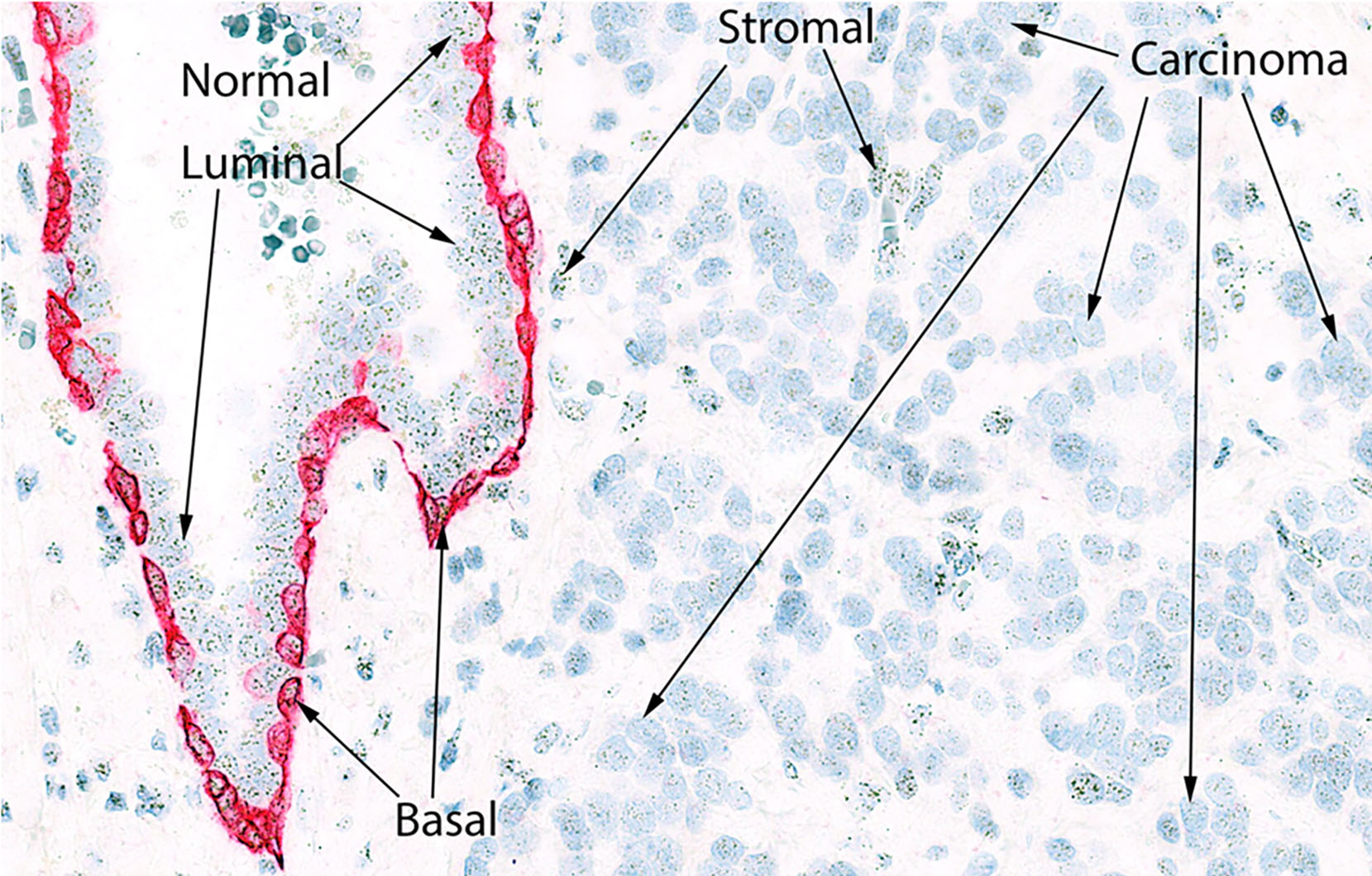
April 2023 – Dr. Joakin Mori participated in the PAIR-UP Live Cell Imaging Workshop @ UNC Chapel-Hill. The workshop is designed to provide training in advanced microscopy (Nikon Ti2, Zeiss spectral detector and Leica FALCON, and TILT lightsheet and 3X tau-STED).
March 2023 – Congratulations to our collaborator,  Dr. Wenzel Hackeng (University Medical Center Utrecht), for winning the prestigious 2023 Håkan Ahlman Award at the Annual European Neuroendocrine Tumor Society (ENETS) Conference in Vienna for our Gut 2022 paper. Our collaborative publication was identified by ENETS as highly translational and extremely relevant to the NET field.
Dr. Wenzel Hackeng (University Medical Center Utrecht), for winning the prestigious 2023 Håkan Ahlman Award at the Annual European Neuroendocrine Tumor Society (ENETS) Conference in Vienna for our Gut 2022 paper. Our collaborative publication was identified by ENETS as highly translational and extremely relevant to the NET field.
March 2023 – Congratulations to Dr. Joakin Mori for receiving a competitive invitation to attend the PAIR-UP Funding Competition Scientific Conference: Hallmarks of Aging and Nutrition in Tempe, AZ.

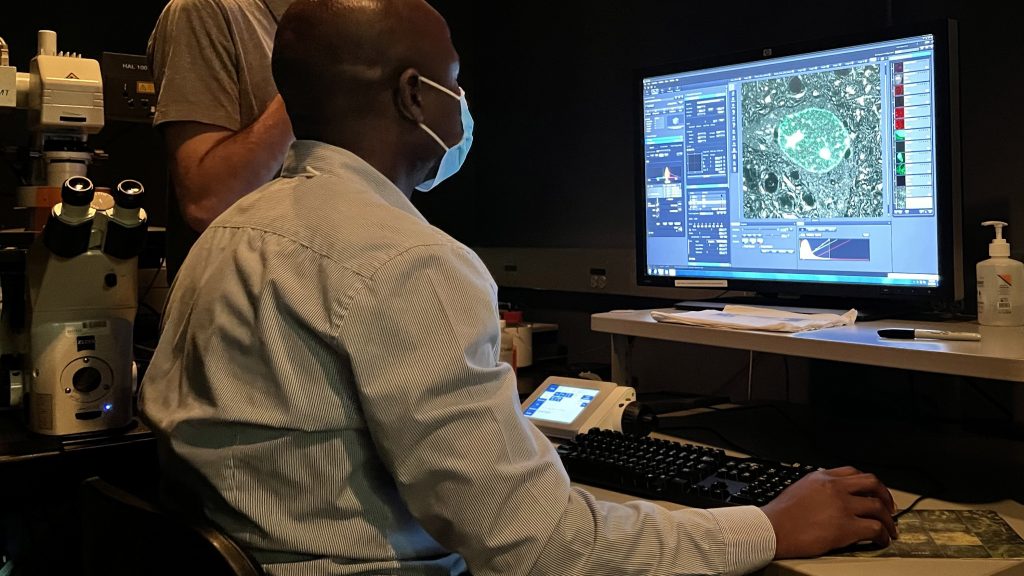
October 2022 – Congratulations to Alexis Kiyanda for presenting her BU STaRS research project and winning the Third Place Award at the Region VII Medical Education Conference (RMEC) Research Symposium in CT!
October 2022 – Wonderful time seeing our friends and collaborators at the 2022 NANETS Multidisciplinary NET Medical Symposium in Washington, DC! This year, Dr. Heaphy was part of the NANETS Symposium Planning Committee Leadership and a co-moderator of the “NIH/NCI Research Retreat”.
August 2022 – Congratulations to Alexis Kiyanda for successfully presenting her BU STaRS research project “Differential protein expression of lamin A/C and cytokeratin-19 in Black and White patients with prostate cancer“.
August 2022 – Check out our latest collaborative review articles on PanNET biomarkers: The Diagnostic and Prognostic Utility of Incorporating DAXX, ATRX, and Alternative Lengthening of Telomeres (ALT) to the Evaluation of Pancreatic Neuroendocrine Tumors (PanNETs) in Human Pathology; Prognostic and predictive biomarkers for pancreatic neuroendocrine tumors in Surgical Pathology Clinics; Clinical implications of cell-of-origin epigenetic characteristics in non-functional pancreatic neuroendocrine tumors in Journal of Pathology.
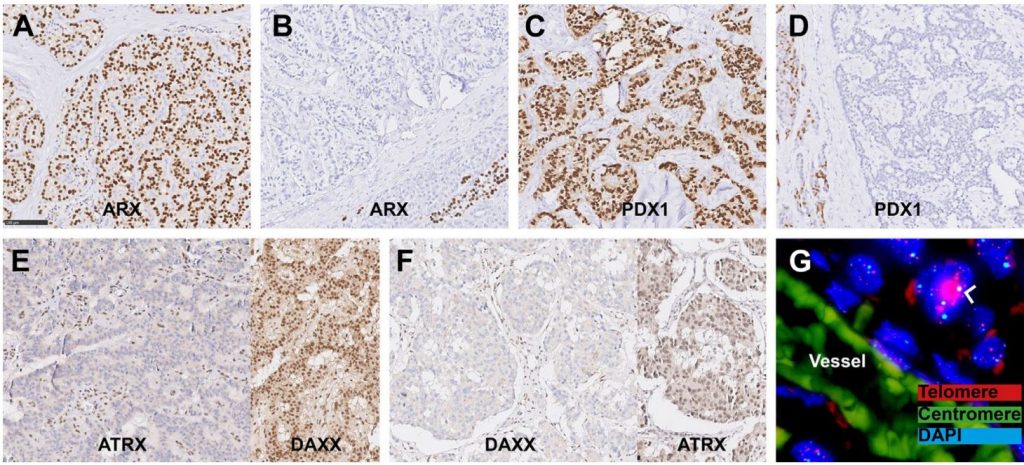


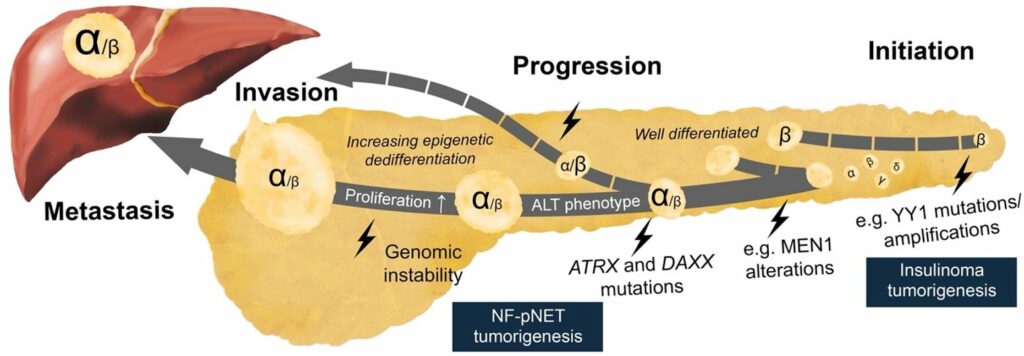
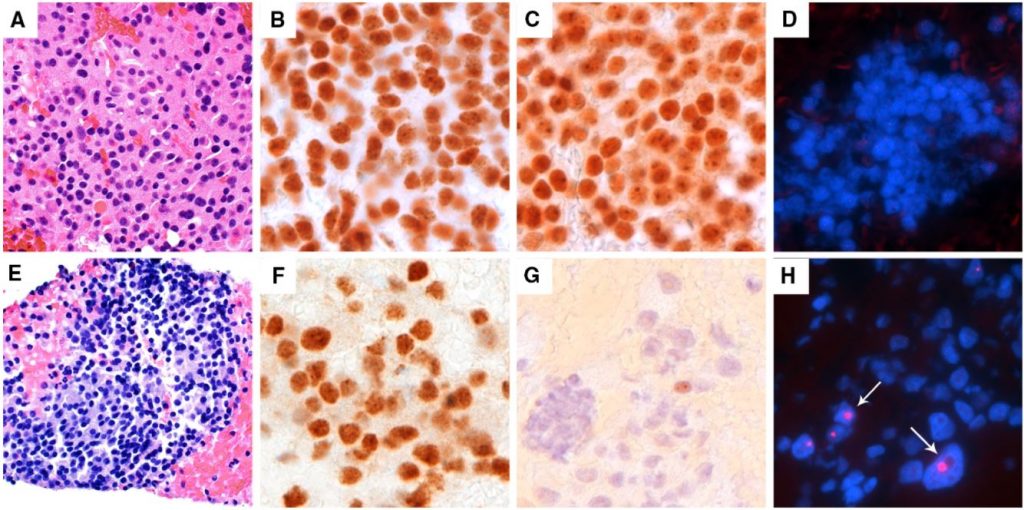
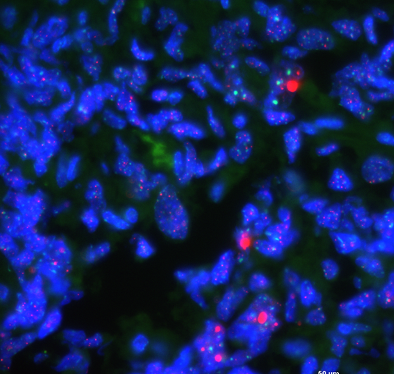
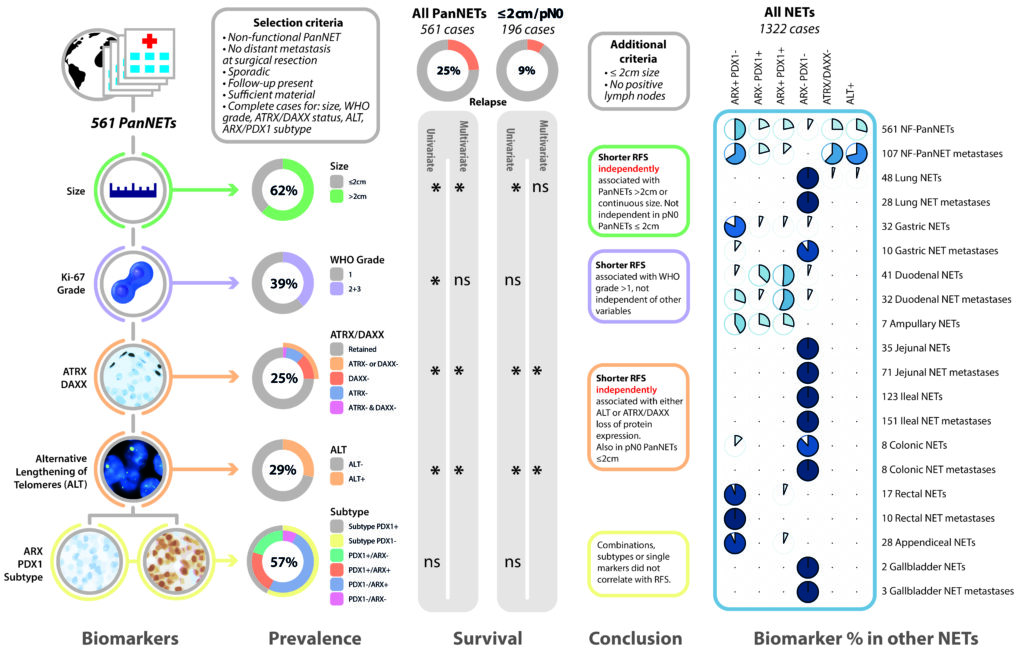
June 2020 – Dr. Heaphy has been appointed as an Assistant Professor in the Department of Pathology & Laboratory Medicine at the Boston University School of Medicine. We look forward to establishing collaborations with our clinical and basic science colleagues in the Department.
June 2020 – We are excited to have two undergraduate students, Elizabeth Nelson and Rachel Choate, virtually join our lab this summer to participate in the Summer Training as Research Scholars Program (STaRS). Welcome Elizabeth and Rachel!
March 2020 – Through collaborative efforts, the Heaphy Lab has contributed to studies in prostate cancer that were published back-to-back this month in Cancer Epidemiology, Biomarkers & Prevention! Check out High extra-tumoral mast cell counts are associated with a higher risk of adverse prostate cancer outcomes and Racial difference in prostate cancer cell telomere lengths in men with higher-grade prostate cancer: a clue to the racial disparity in prostate cancer outcomes.

